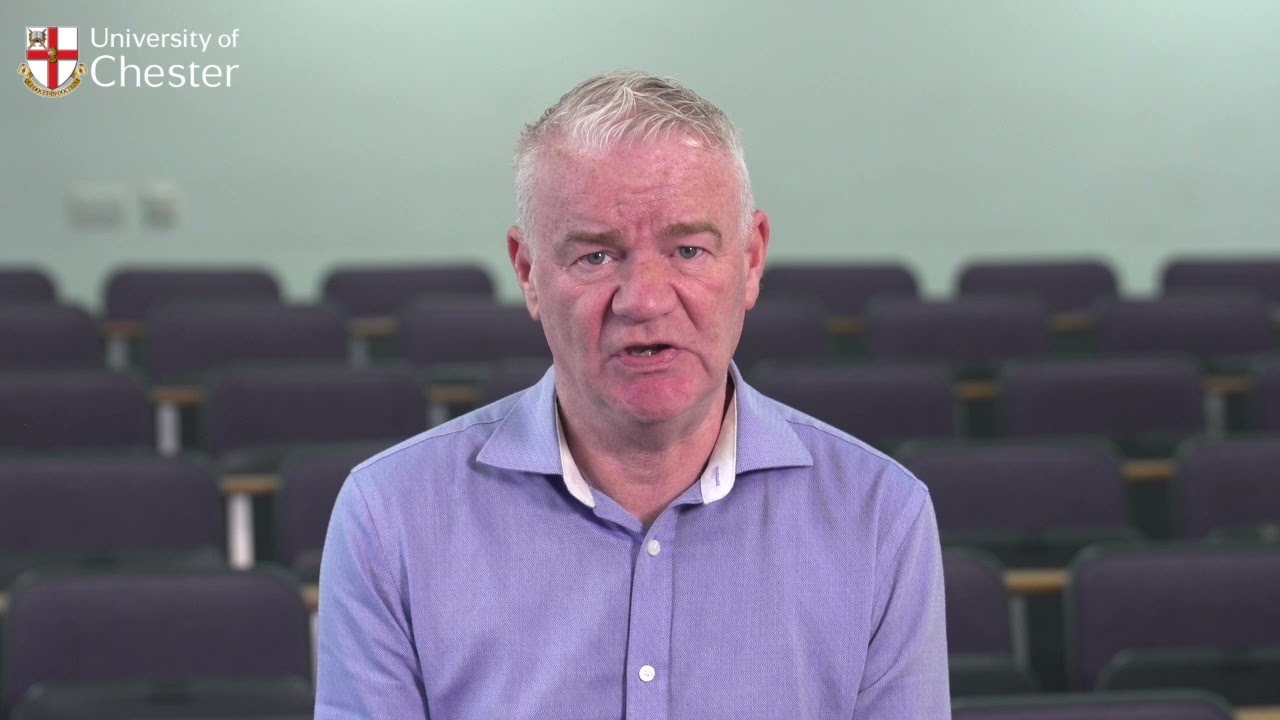Digital Marketing MSc/PGDip/PGCert


You are viewing Course summary
Course Summary
The UK currently has a digital marketing skills gap, and this MSc aims to provide you with the necessary knowledge and skills to pursue or enhance a career in marketing with specialist digital marketing expertise.
This course is ideal for marketing practitioners who wish to gain digital media skills and knowledge, or graduates who are interested in a digital marketing career and want to increase their job prospects in this growing industry sector.
You will learn about key areas of digital marketing strategy, the application of digital technologies and how to monitor campaigns. This includes the development of practical and creative skills in email marketing, search engine optimisation (SEO), online advertising, website usability, mobile applications, market segmentation, affiliate marketing, online PR and social media.
Our course has been designed in partnership with leading digital practitioners and the Institute of Direct and Digital Marketing to make sure it provides you with the skills and knowledge needed by industry. As a result, there is also an opportunity for successful students to achieve further professional recognition.
There is an option to choose a Project/Placement year for this course, at an additional cost.
Optional 2-year master's to suit your needs
Choosing a Professional Placement MSc is a win-win for your career, giving you the chance to get real experience, apply your cutting-edge skills in the workplace and stand out to future employers.
In the first year you will have help from the University to find a placement, whilst developing your expertise. You will then spend your second year out in industry on placement, getting the chance to work with industry professionals and grow your network of industry contacts. Bringing the latest business school insights to industry, you will get to make a difference to the workplace and make lasting links with your employer.
Students need to find and secure their own placement, supported by the University. A preparation module will also help you to get ready for your placement.
Please note, this programme is available as a one-year master degree programme, or as a Two-Year Master's Programme with a Professional Placement or Project. Please carefully consider your options when applying for our one year or Two-year routes as successful international applicants will not be able to change between programmes after a Confirmation of Acceptance of Studies (CAS) letter has been issued or after arriving in the UK.
What You'llStudy
If you choose a placement or project year, the Research Dissertation module will be replaced by a placement or project module.
Module content:
• The nature, extent and purposes of research in marketing and marketing management.
• Research paradigms in researching areas of marketing.
• Research strategies for marketing and marketing management.
• Research designs, methods and approaches
• Research quality standards: establishing validity, reliability and generalisability
• Research instrument design and sampling.
• Research ethics.
• Research Data Management and Interpretation: collection, organisation, analysis, conclusions.
• Managing a dissertation research project.
Module aims:
The aim of this module is to enable learners to:
- Design and implement a research project proposal using methodologies and methods appropriate to research questions and objectives within the field of marketing and/or marketing management.
- Critically analyse and report research findings meeting academic and/or practitioner requirements of a marketing management research project.
- Develop appropriate skills in preparing, implementing and managing marketing projects.
Module content:
A programme of individual study and research project in accordance with established research principles involving the completion of the following elements:
Marketing Management Project
- Introduction and planning Marketing Management Projects
- Approaches to critically review literature and other sources of data for a marketing management project
- Justifying appropriate data collection methods
- Research ethics
- Undertaking a marketing management project
- Selecting data analysis techniques for a specified research strategy
- Techniques in forming conclusions and preparing implications and recommendations.
Module aims:
- To provide students with an opportunity to propose justified solutions to a marketing problem.
- To enable students to develop and apply their existing knowledge to a project and to enhance their ability to collect, analyse and interpret a range of sources of data.
- To enhance students’ skills to complete a significant piece of research that embodies the ability to clearly communicate a marketing issue, plan and implement a research design and evaluate data in a comprehensive and cohesive project.
Module content:
This module covers some of the key skills needed by a marketing practitioner operating in a digital environment.
Key Themes:
- understanding digital disruption and the impact on digital communications strategy
- Using digital planning frameworks to align business objectives with campaign objectives
- Planning and implementing digital communications tools, which includes: search engine marketing, email marketing, digital PR, content marketing, email marketing, affiliate marketing
- Using segmentation techniques for effective campaign implementation and management
- Developing and using website personas for acquisition and conversion (research and web analytics)
- Planning successful campaigns by developing online value propositions and understanding buyer behaviour
- Branding for digital communications
- Understanding campaign timing and integration issues
- Building online customer relationships
Module aims:
This module provides opportunities for students to:
- Explore and develop an understanding of the theories, concepts and techniques employed in strategic digital marketing communications and their integration into traditional marketing campaigns;
- Consider a framework of understanding and critically analyse strategic digital marketing communications in diverse organisational types and in differing contexts and frameworks of operation;
- Develop an advanced critical understanding of the uses and limitations of digital marketing tools in the business environment and to be able to apply creative solutions to business management situations.
Module content:
This module covers some of the key skills needed by a marketing practitioner or strategist operating in a digital environment.
Key Themes:
- Customer Journeys
- Customer Personas
- Profiling, segmentation and targeting
- Setting objectives
- Data mining and data modelling
- Acquisition
- Conversion
- Retention
- Configuring for tactical mix with ACR in mind
- Metrics and tools
Module aims:
This module provides opportunities for students to:
- Explore and develop an understanding of the theories, concepts and techniques that can be used for acquisition, conversion and retention in digital marketing campaigns
- Critically evaluate the advantages and limitations of different digital marketing techniques in diverse organisational types and in differing contexts and frameworks of operation
- Consider the most appropriate applications of digital acquisition, conversion and retention tools against organisational objectives and resources
- Develop critical and creative skills to analyse an organisation's market position and offer realistic digital marketing solutions in the context of a real life situation
Module content:
This module will offer a theoretical, historical, and cultural exploration of the contexts, functions, meanings, and impact of social media in contemporary society
The module will enable students to evaluate, project,and apply the practical aspects of social media to different contexts.
The student will develop and employ advanced practical and technical skills in different applications in order to develop and deploy appropriate social media strategies.
The module will examine dominant and emergent social media forms and the most influential digital media technologies in the context of a variety of themes. The following is illustrative of what the module may cover (subject to the constant ongoing developments in this field):
- Data-driven insight in a social media marketing context
- The uses of social media in corporate and political media relations activities
- Social Media Marketing Strategy
- Social Media Platform Strategy
- Social Media messaging strategy
- Influencer Marketing
- User-generated content development and curation
- Professional practice in social media - reputation management
The application of social and digital media technologies to marketing and communications projects
Module aims:
The aims of this module are as follows:
- To enable students to critically explore the backgrounds and contexts of contemporary social media marketing;
- To provide opportunities for students to critically evaluate the most appropriate uses of social media strategies in different contexts;
- To enable students to develop the technical, critical, and creative skills to apply the opportunities offered by emerging social media to different contexts;
- To provide a strategic appreciation of Social Media Marketing Strategy and how it integrates with wider Digital Communications strategy.
Module content:
|
This module covers some of the key skills needed by a marketing practitioner operating in a digital environment. Key Themes: The following is illustrative of what the module will cover (subject to the constant ongoing developments in this field):
|
Module aims:
The aims of this module are to:
- provide a critical understanding of the theories, concepts and frameworks relating to online consumer behaviour in different contexts;
- enable an advanced critical understanding of the various factors which influences online consumer behaviour;
- develop and evaluate different Customer profiling and customer journey mapping techniques
- facilitate the critical application of customer journey maps and personas to different contexts.
Module content:
|
This module covers some of the key skills needed by a marketing practitioner operating in a digital environment. Key Themes:
o 7S o Change plans
|
Module aims:
The aims of this module are to:
- provide students with an in-depth, strategic appreciation of the concept of Digitial Disruption;
- encourage students to critically reflect on current and future digitally disruptive trends;
- enable students to critically assess an organisation's digital capabilities and readiness for change;
- empower students to develop appropriate strategic recommendations in response to identified disruptive trends and in the context of operational capabilities.

MSc Digital Marketing
Although this course is mainly assessed through coursework, for some of the more practical modules the development of artefacts such as digital advertising materials form part of the assessment.
Entry Requirements
2:2 honours degree
An honours degree in a complementary area, usually 2:2 or above, and/or suitable work experience, is required.
2:2 honours degree
An honours degree in a complementary area, usually 2:2 or above, and/or suitable work experience, is required.
English Language Requirements
Applicants whose first language is not English must provide evidence of proficiency to IELTS 6.5 with no less than 5.5 in each band or equivalent.
For more information on our English Language requirements, please visit International Entry Requirements.
Fees and Funding
£15,000for a full-time course (2025/26)
The tuition fees for international students studying Postgraduate programmes in 2025/26 are £15,000.
Please note: For MSc programmes where a placement or project year is undertaken there will be an additional charge of £2,750 for the placement/project year (due at the start of the second year of the course).
The University of Chester offers generous international and merit-based scholarships for postgraduate study, providing a significant reduction to the published headline tuition fee. You will automatically be considered for these scholarships when your application is reviewed, and any award given will be stated on your offer letter.
For more information, go to our International Fees, Scholarship and Finance section.
Irish Nationals living in the UK or ROI are treated as Home students for Tuition Fee Purposes.
Your course will involve additional costs not covered by your tuition fees. This may include books, printing, photocopying, educational stationery and related materials, specialist clothing, travel to placements, optional field trips and software. Compulsory field trips are covered by your tuition fees.
The University of Chester supports fair access for students who may need additional support through a range of bursaries and scholarships.
Full details, as well as terms and conditions for all bursaries and scholarships can be found on the Fees and Finance section of our website.
Your Future Career
Careers service
The University has an award-winning Careers and Employability service which provides a variety of employability-enhancing experiences; through the curriculum, through employer contact, tailored group sessions, individual information, advice and guidance.
Careers and Employability aims to deliver a service which is inclusive, impartial, welcoming, informed and tailored to your personal goals and aspirations, to enable you to develop as an individual and contribute to the business and community in which you will live and work.
We are here to help you plan your future, make the most of your time at University and to enhance your employability. We provide access to part-time jobs, extra-curricular employability-enhancing workshops and offer practical one-to-one help with career planning, including help with CVs, applications and mock interviews. We also deliver group sessions on career planning within each course and we have a wide range of extensive information covering graduate jobs and postgraduate study.
 ">
">
 ">
">













